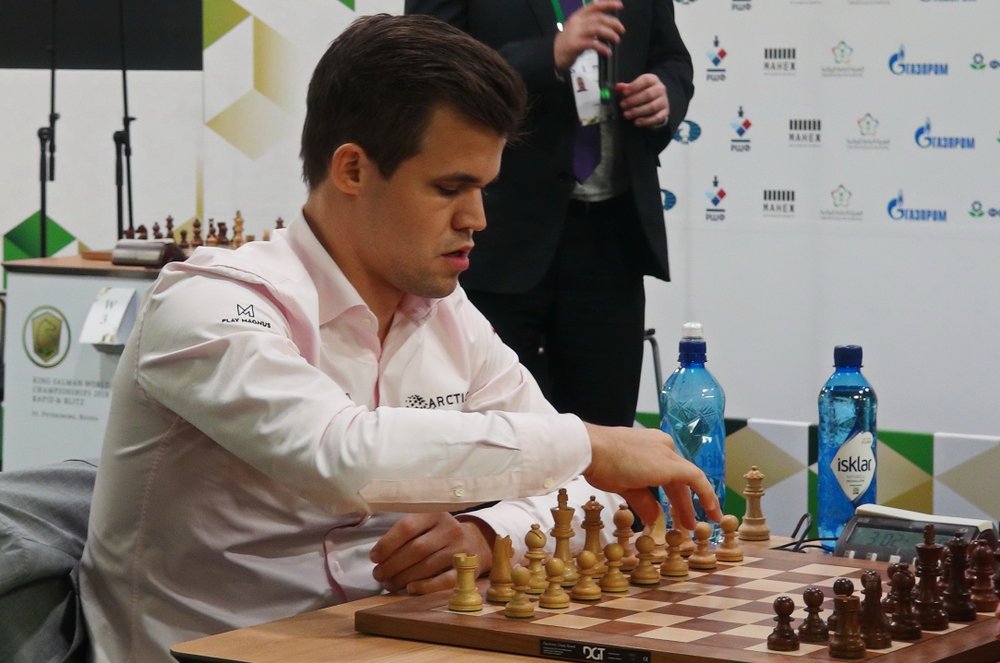Investing Insights from the 2021 World Chess Championship
/The 2021 World Chess Championship was expected to be a hard-fought battle. The challenger, Ian Nepomniachtchi (affectionately known as Nepo in the chess world) from Russia, was taking on the reigning world champion, Magnus Carlsen, from Norway. While Carlsen is the number one ranked chess player in the world, Nepo, ranked number five, is not far behind. Commentators were predicting a close match, with some forecasting that Nepo’s attacking style was the right prescription to de-throne the reigning world champion.
The beginning of the match lived up to the high expectations. Over the first five games Nepo pressed Carlsen and had some winning chances, despite all of the games ending in a draw. For context, the prior two world championships had all of the long, classical, games end in a draw, with the outcome decided on tie-breaks based on rapid or blitz games with five to ten minutes per side.
Then game six took place. In what will go down in the annals of the chess world as a memorable classic, the game was an epic battle that lasted over 100 moves. Nepo was able to reach a position where he had the advantage, with Magnus having but a few minutes left on his clock. If Magnus’s time were to run out, Nepo would win game six. Yet, despite the time pressure and due to Nepo’s slightly inaccurate play, Magnus was able to equalize and reach a drawn position and reach the time control when each player received an additional hour on their clock.
The commentators were ready to pack it in, with a draw looking obvious to them, in the comfort of being on the sidelines with nothing at stake and with computers aiding their analysis. However, Magnus was not done. He kept making moves that forced his opponent to make tough decisions, despite being in a theoretically drawn position. Under relentless pressure from Magnus, Nepo eventually made a mistake, and what was a theoretical draw eventually became a win for Magnus.
So after a series of five draws, we finally had a decisive result, with Magnus in the lead with a score of 3.5 vs. 2.5 for Nepo. With 8 more games remaining, the match was by no means over. All it would take was a win by Nepo to tie the match, certainly a far from impossible task.
And yet, the man who in the first five games held Magnus to all draws, and who almost won game six despite his eventual loss, lost the next 3 out of 5 games. All three losses were based on blunders that commentators did not think possible from the world championship challenger.
Forget the commentators. After his second loss, in game eight, Nepo had the following to say to reporters during the post-match conference:
“I want to apologize for my performance today. […] I did not play at my usual level. I would say that I did not even play at a Grand Master level.”
After just 11 games, rather than the full 14, the World Chess Championship ended today. Magnus Carlsen won, with a score of 7.5 vs. 3.5. Commentators called this the most stunning collapse in modern chess championship history. There was shock and frustration across the chess world. What started out as a promising and exciting match among near-equals degenerated into a one-sided contest with few chess games worthy of real analysis or study.
So what happened? And how is all of this relevant to investing?
In the end it didn’t come down to theoretical chess knowledge or potential. The deciding factor was the same as what determines success in investing – temperament. Nepo played well in the beginning, before he encountered adversity. Game six, which was an epic battle of which he should be proud despite his ultimate loss, was the straw the broke the camel’s back.
Faced with adversity, and with the pressure of needing to force a win in order to tie the match, Nepo fell apart mentally. No, his theoretical knowledge of chess didn’t evaporate. He still had the same exact training as he had prior to game six. So what changed?
What changed was his temperament caused him to tilt. Tilt is a state of mind where one deviates from their best rational process in their decision making. Playing on tilt, Nepo performed far below his theoretical potential. He was no longer playing his A-game. He was playing his C-game, and the results reflected that.
Many investors are familiar with the affliction that Nepo faced. Decked out in fancy clothes and armed with slick PowerPoint decks, they are able to confidently talk about their investing process when everything is going their way. But what happens to them after a setback? What happens when for a period of time the market doesn’t provide validation for their investing process?
Many fall apart, and start to deviate from their process in major ways. Frustrated, and trying “to get back in the game,” they act in a way that their calm, rational selves would not act based on their knowledge of investing and their experience.
Except that all of that theoretical knowledge doesn’t matter. What matters is the actual investing decisions that they are making now, in real time. Not what the decisions that they could have made if they were in a better state of mind. Because it is the actual decisions that they make that will affect the results, not some theoretical knowledge.
So what matters is their temperament. Their ability to maintain an even keel and to make decision near their theoretical maximum potential. This is perhaps the most underestimated advantage an investor can have – the temperament to stay rational when others aren’t able to do so.
How can you tell if an investor has the right temperament? Examine the quality of their process during and after a period of adversity. Anyone can talk a good game. It takes the right temperament to play one when things haven’t been going your way.
If you are interested in learning more about the investment process at Silver Ring Value Partners, you can request an Owner’s Manual here.
If you want to watch educational videos that can help you make better investing decisions using the principles of value investing and behavioral finance, check out my YouTube channel where I regularly post new content.



